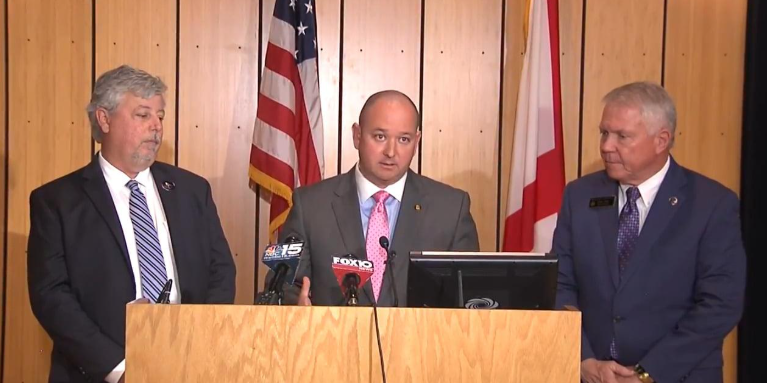
NASHVILLE, Ten. — Besides the scandals engulfing each of Alabama’s three branches of government, the issue of tax hikes has dominated the state’s political arena. In 2015, when the state faced a General Fund crisis, Gov. Robert Bentley (R-Ala.) proposed over $100 million in tax increases to temporarily fix the problem, many of which were ultimately passed by a Republican dominated legislature.
RELATED: Study: Alabama legislators are addicted to ‘sin taxes,’ allergic to reforms
Over the same calendar year, Forbes has reported that Alabama’s northern neighbor, Tennessee, experienced an $800 million surplus in tax revenue. When Alabama and so many states across the country are struggling to make ends meet, how on Earth did the Volunteer State manage to pull off such a feat? The answer lies in the pro-growth formula enacted by the state that is straight out of Ronald Reagan’s playbook.
The centerpiece of Tennessee’s structure is the sales tax which is the state government’s main source of revenue. Government receipts from the sales tax have consistently exceed even the most optimistic economic models, totaling $33.5 million more than estimates for the month of May 2016 which is 6.49 percent higher than in May 2015.
Those statistics are surprising on their own. But perhaps the most shocking piece of the puzzle – and most convicting of liberal thought – is that this revenue boom was achieved without levying an individual income tax. Despite failing to punish individuals for their hard work, Tennessee has a year-to-date growth rate of 7.81 percent and is seeing a positive surge of wealth migration.
Meanwhile, Alabama’s solutions have been stuck in the mud, with legislators merely rehashing old ideas such as increasing sin taxes or charging businesses more to operate in the state.
RELATED: Economists: Alabama’s income tax is inhibiting economic growth, should be eliminated
Economists have long taken note that Alabama’s income tax structure makes it less competitive in the Southeast region, where states like Tennessee have decided to eliminate the practice altogether.
Alabama’s per person tax revenues may be the lowest in the U.S., but Alabama’s tax rates are certainly not the lowest in the nation. Alabama’s 5% tax rate makes it the 31st highest in the nation (tied with Mississippi, New Hampshire, and Utah). That is higher than Florida, Tennessee, and Texas which all have zero income taxes (though Tennessee does have a 6% tax on interest and dividend income).
Drs. Stephen Miller and Daniel J. Smith of the Johnson Center for Political Economy argued strongly for a new structure in a Yellowhammer op-ed earlier this year.
Alabama needs tax reform. The current tax regime is both unfair and inefficient. More importantly, it’s not competitive with our neighbors and inhibits economic growth. While more prosperity will bring higher tax revenues, tax revenue is not itself the answer to Alabama’s sluggish growth. Alabama has chronic budgeting and spending problems. But the solution isn’t higher taxes. Economic growth doesn’t come from higher taxes.
Alabama may not be ready to reform its tax structure, but the states around it sure are. Not only have they taken action, but it is having positive effects. Hopefully Alabama will not get left in the dust.
RELATED: Happy tax day: Forbes says Alabama is the 10th best state for taxes












